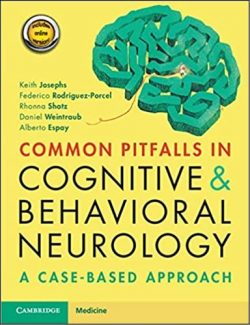This timely practical reference addresses the lack of Spanish-language resources for mental health professionals to use with their Latino clients. Geared toward both English- and Spanish-speaking practitioners in a variety of settings, this volume is designed to minimize misunderstandings between the clinician and client, and with that the possibility of inaccurate diagnosis and/or ineffective treatment. Coverage for each topic features a discussion of cultural considerations, guidelines for evidence-based best practices, a review of available findings, a treatment plan, plus clinical tools and client handouts, homework sheets, worksheets, and other materials. Chapters span a wide range of disorders and problems over the life-course, and include reproducible resources for:
- Assessing for race-based trauma.
- Using behavioral activation and cognitive interventions to treat depression among Latinos.
- Treating aggression, substance use, abuse, and dependence among Latino Adults.
- Treating behavioral problems among Latino adolescents.
- Treating anxiety among Latino children.
- Working with Latino couples.
- Restoring legal competency with Latinos.
The Toolkit for Counseling Spanish-Speaking Clients fills a glaring need in behavioral service delivery, offering health psychologists, social workers, clinical psychologists, neuropsychologists, and other helping professionals culturally-relevant support for working with this under served population. The materials included here are an important step toward dismantling barriers to mental health care.
Delivering psychological services to Spanish-speaking clients.- Using treatment terminology with Spanish-speaking clients.- Tools for treating trauma-related disorders among Latinos.- Tools for treating generalized anxiety disorder among Latinos.- Tools for treating social anxiety disorder among Latinos.- Tools for treating panic disorder among Latinos.- Tools for treating obsessive compulsive disorder among Latinos.- Using behavioral activation to treat depression among Latinos.- Using cognitive interventions to treat depression among Latinos.- Tools for treating substance use, abuse, and dependence among Latinos.- Tools for treating anger management among Latinos.- Tools for treating eating disorders among Latinos.- Tools for treating sleep disturbances among Latinos.- Tools for treating with behavioral problems among Latino adolescents and children.- Tools for treating trauma-related disorders among Latino children.- Tools for treating anxiety among Latino children.- Tools for treating depression among Latino children.- Tools for working with Latino couples.- Tools for working with Latino sex offenders.- Tools for restoring legal competency with Latinos.- Tools for treating chronic pain with Latinos.- Dialectical behavioral therapy with the Spanish speaker.
Lorraine Benuto is a licensed clinical psychologist and a post-doctoral scholar at the University of Nevada, Reno, where she provides treatment to victims of sexual assault, sexual abuse, and child physical abuse. She is project coordinator and therapist of the Victims of Crime Treatment Center at the University of Nevada, Reno. Dr. Benuto received her doctoral degree in clinical psychology from the University of Nevada, Las Vegas. Previously, she completed her APA-accredited internship at the VA in San Juan, Puerto Rico where she delivered psychological services to a culturally diverse clientele presenting with depression and anxiety. Dr. Benuto has extensive experience delivering evidence-based treatments and conducting psychological assessments with the Latino population. She has delivered professional presentations at state, national, and international conferences on topics related to cultural competence and co-edited Handbook of Adolescent Health Psychology for Springer.
This timely practical reference addresses the lack of Spanish-language resources for mental health professionals to use with their Latino clients. Geared toward both English- and Spanish-speaking practitioners in a variety of settings, this volume is designed to minimize misunderstandings between the clinician and client, and with that the possibility of inaccurate diagnosis and/or ineffective treatment. Coverage for each topic features a discussion of cultural considerations, guidelines for evidence-based best practices, a review of available findings, a treatment plan, plus clinical tools and client handouts, homework sheets, worksheets, and other materials. Chapters span a wide range of disorders and problems over the life-course, and include reproducible resources for:
- · Assessing for race-based trauma.
- · Using behavioral activation and cognitive interventions to treat depression among Latinos.
- · Treating aggression, substance use, abuse, and dependence among Latino Adults.
- · Treating behavioral problems among Latino adolescents.
- · Treating anxiety among Latino children.
- · Working with Latino couples.
- · Restoring legal competency with Latinos.
The Toolkit for Counseling Spanish-Speaking Clients fills a glaring need in behavioral service delivery, offering health psychologists, social workers, clinical psychologists, neuropsychologists, and other helping professionals culturally-relevant support for working with this under-served population. The materials included here are an important step toward dismantling barriers to mental health care.
Designed for clinicians who work with Spanish-speaking clients
Offers a much needed set of worksheets and tools that are easily administered to Spanish-speaking clients
Each chapter provides a treatment overview and a brief session-by-session guide for evidence-based intervention





